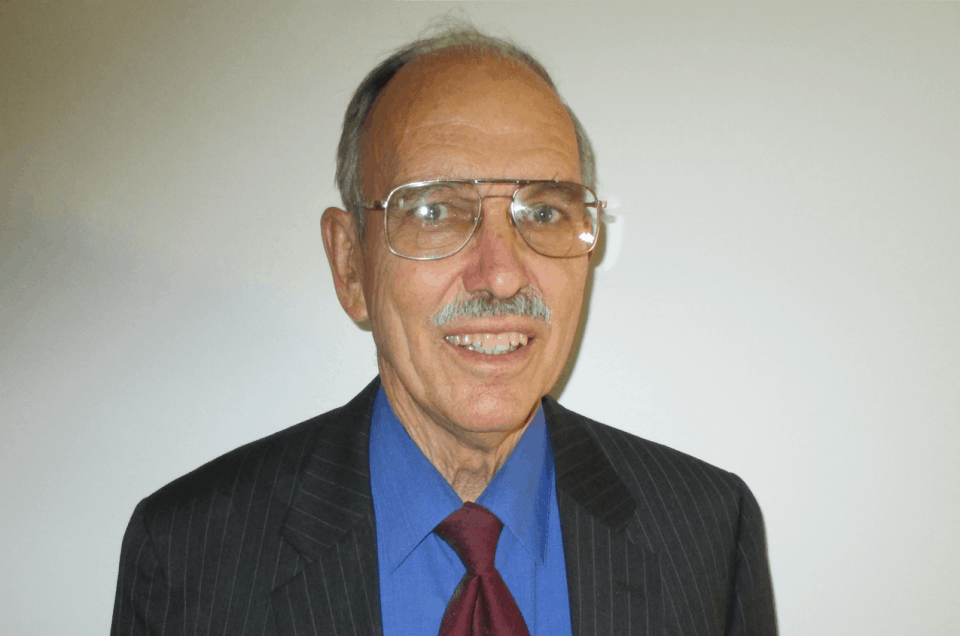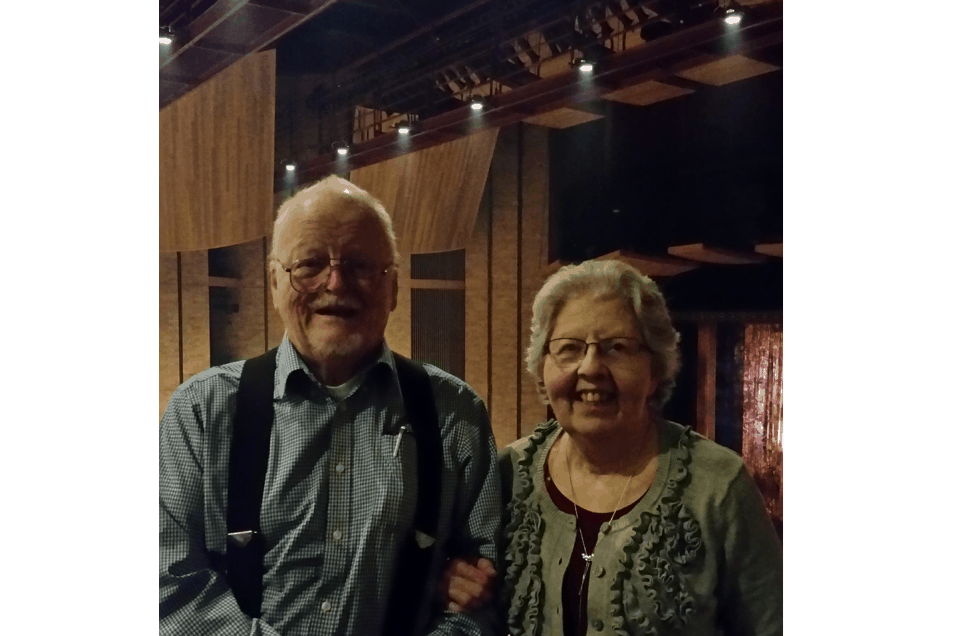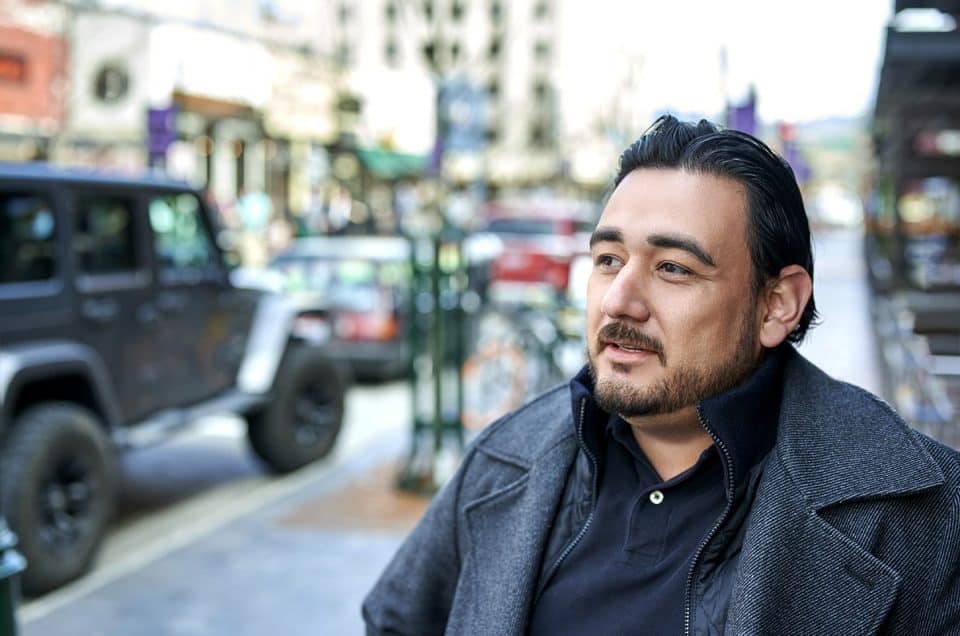

But those complaints aren’t directed at you.
It’s an attitude born from fear: fear that Idaho is changing too fast, that higher taxes, government bloat, and corrupt special interests will creep out of California and twist our state.
But maybe you (and thousands of new Idahoans) moved here to live in a place where government doesn’t constantly have its fingers in your wallet. Maybe you seek a home that respects your right to make choices for your family and your life.
You are a champion for independence, hard work, and freedom. You embrace Idaho values.
You are new to Idaho, true to Idaho.
READ WHY THESE NEW IDAHOANS CAME TO THE 43RD STATE.


WE CAME TO IDAHO BECAUSE GOD BROUGHT US HERE. I WAS WORKING FOR THE NAVY AT THE TIME, AND WORKING FOR THE GOVERNMENT KEPT EATING AT ME. SO, MY FAMILY CAME HERE… WE CONTINUE TO WORK HARD TO ENSURE THAT CALIFORNIA DOES NOT INFLUENCE IDAHO.”
-JIM HOLLINGSWORTH, IDAHOAN SINCE 1968
What he loves about Idaho: “We came to Idaho from California in 1968… We really did not know anything about the taxes but wanted a simpler life. A life where people could sit down and talk a little.”
What he wants to avoid in Idaho: “[Idahoans] are pretty conservative, maybe the most conservative in the country, yet we continue to spend more and more. Somewhere it just has to stop.”
Government pet peeve: “I would start examining Idaho’s education funding, where we spend most of our state money. We can spend less and have a better education.”


“THE POLITICS DOWN IN CALIFORNIA WERE GETTING SO CRAZY . . . IT’S GOTTEN WORSE SINCE, SO WE’RE GLAD WE’RE UP HERE.”
– BARBARA & BRUCE, IDAHOANS SINCE 2004
What they love about Idaho: “There’s a lot of variety of activities up here—whether on the water, snow and mountains, or theater at the Morrison Center. Also, there’s a good range of specialists close by in Boise for medical care. Back in California, we would have had to drive a ways.”
What they want to avoid in Idaho: “Boise becoming just like Los Angeles. We need measures to keep Idaho from becoming like California, with it’s poorly planned and overly-dense-feeling cities.”
Government pet peeve: “Poor road management by Boise. Why would you close multiple roads in the same area at the same time, and leave only one detour for residents?”


“NOT ALL [CALIFORNIA REFUGEES] ARE HERE TO SPREAD SOCIALIST PROPAGANDA. I CAME TO IDAHO TO START FRESH AND BUILD SOMETHING WITH MY LIFE. GIVE US A CHANCE.”
– MIGUEL MEJIA, NEW IDAHOAN
“Growing up, my friend and I would go to his uncle’s house, just to drink and lay around. That’s all his uncle did,” Miguel Mejia told me. “He had claimed some kind of disability, but the guy was fine. He just lived on government Section 8 government housing and welfare.”
Miguel lived in San Diego all his life, but is a proud resident of Idaho as of March 2019. To kick off the Idaho Freedom Foundation’s New to Idaho, True to Idaho interviews with blue state refugees, I recently sat down with Miguel to hear why he fled California, and his hopes for the future of his new state.
Miguel sat across from me in a downtown Boise coffee shop, leaning forward as he recounted a story that infuriates him to this day. “A couple years later, when I was in my late twenties, I asked my friend how his uncle was doing.” It turns out the uncle had snagged a Section 8 house in Coronado, the most expensive section in San Diego. Miguel explained that housing developments in the city had to reserve a certain portion of homes for those on government welfare, as so not to discriminate.
Miguel’s family got no such treatment. His voice grew heated while recounting, “I lived in a bad neighborhood, despite working all my life. I remember thinking, ‘I work hard, so how come I get this house in the ghetto, whereas this guy just lives off welfare and works the system, and he gets to live on the beach in Coronado?’”
This story stuck with Miguel, as it went against everything his father had taught him: Work hard and and you get rewarded. But it’s the opposite in California, Miguel nodded: “The harder you work, the more they think you need to pay.”
Miguel misses southern California’s temperate climate, but not much else. When I asked Miguel what prompted his decision to move, he leaned back in his chair and shook his head. “Where do I start?” he wondered. “I ran several small businesses, and owned a trucking company with twelve employees down there, which I inherited from family and built up over the years.” Miguel described how California politicians kept piling on mandates, and the regulatory burdens grew too intense.
Miguel highlighted California’s crippling emissions laws. “You can’t run older trucks in California; the laws force you to constantly buy newer trucks,” Miguel explained. Worse, Miguel described, the more eco-friendly filters required in newer trucks made the truck engines break down regularly: “It just ate into our profits.” Miguel blamed out-of-touch politicians, who don’t fully consider the consequences of new laws, and ignore who will pay the price. Thus, he shrugged, the regulatory burden often falls on companies and small businesses. “It was just impossible to run a small business down there,” Miguel stated.
It is a different story in Idaho. Miguel’s uncle is a truck driver in the Gem State, and several years before Miguel’s move, the two of them compared California’s and Idaho’s business climates with regards to trucking: The hours employees are allowed to work, the labyrinth of worker’s compensation laws, and so forth. As he and his uncle compared costs, Miguel envied how Idaho’s “hands off” regulatory culture allowed his uncle’s business to thrive.
On the personal level, annual pickup truck registration in San Diego cost Miguel well over $500, and he’d spend $80 on gas for a single week. In Boise, Miguel’s registration is under $100, and costs $40 to fill a gas tank.
Looking at his financial statements at the end of each month in San Diego, Miguel found himself asking, “Where did all my money go? It was eaten away just by all these trickling little things.”
Miguel cited California’s sales tax as another “little thing,” sitting upright as he recalled a run-in with California’s tax department. Several years ago, Miguel negotiated with the tax department to pay off the state sales tax his business owed for the year. They came to an agreement: Miguel steadily made payments of $200 dollars per month from his business account. Miguel remembered, “But at one point, they just decided to take everything I owed at once from the account.”
Miguel called the tax department—he thought they had an agreement in place. Miguel recalled the response: Oh yeah, but we needed the funds, so we withdrew the entire payment. Miguel was shocked. He tried to explain that without the money, he wouldn’t be able to make payroll that week, and his business might have to close its doors. “I told them ‘you’re not going to be able to get any more money out of me, if I can’t pay my employees and close my doors, so nobody benefits from this.’” The response? Something along the lines of: Ah, well, that’s your problem.
Sitting in the quiet cafe, Miguel took another sip of his coffee, and sighed, “It was frustration after frustration like that.” Miguel described how new taxes cropped up everywhere, and California’s socialist mentality expected people to give more and more and more. “It’s supposedly to help people,” Miguel clarified, “but it was just hurting everyone. They were going to end up taxing us to death, and then nobody’s going to get anything.”
Finally came the straw that broke the camel’s back: A proposed law that would have taxed every text message people sent. Though the legislation failed, it was a grim look at the future. “This is getting out of hand,” Miguel remembered thinking at the time. “I’m not even going to be able to afford my own cell phone to send texts in the first place.”
Miguel said though many Californians like him are tired of their state’s spend-happy attitude, many others demand still more programs. Miguel just wants to know where government spenders are going to get the necessary money from. Apparently, a common California attitude is that government revenue should be taxed from companies, which are characterized as greedy and abusive. “That’s not true,” Miguel proclaimed. “I’m a small business, and you’re not even letting me break even,” Miguel wished he could tell California politicians.
Miguel credited his free-market outlook to several sources. First, Ayn Rand’s seminal libertarian novel Atlas Shrugged. “Reading that book changed my life,” Miguel revealed. “It got me thinking about people working for themselves. Not greed, per se,” here Miguel paused to formulate his thoughts. Finally, he nodded and said firmly, “You should be able to benefit from what you produce.”
A second influence was Miguel’s father, a role model as one who earned the American Dream via tenacity. “My dad, without noticing it, is a very conservative person,” Miguel grinned. “When he first came to America, he worked in San Diego, and he used to sleep under cars for warmth at night. My dad never asked for anything from anyone.” Miguel described how his father, starting with one vehicle, built a multi-million-dollar trucking business through sheer grit and hard work. Miguel and his sister grew up comfortably, and they never had to sleep under cars.
However, Miguel’s father never let them forget their roots: “You work for what you get, and you don’t ask for handouts.” Miguel explained, “That was a big influence for me. After what my dad went through, he knew the truth: Nothing is free in this world.”
Miguel follows in his father’s footsteps. “I like to work,” Miguel noted. Furthermore, he likes to help those in need. “And I think it should be my choice,” Miguel frowned. “The individual is a lot more efficient helping people than the government. They say people in business are greedy, but that’s just not true.”
Miguel believes he is able to do his community more good than any new tax could. As a San Diego small business owner, Miguel produced steady revenue for the state, and provided empowering jobs to many people. Miguel shrugged, “But now [California] isn’t letting me do any of that.” Thus, the decision to close up shop and move was “just a no brainer” for him.
Miguel evaluated several states as potential homes, but settled on Idaho. For one thing, Miguel’s uncle, some cousins, and other family members before him had set down roots in the Gem State. In addition, Miguel told me, compared to California or Texas, people are surprisingly friendly here. “Whether it’s good service, or people you meet on the street,” Miguel grinned, “I’ve noticed everyone is nice in Idaho.”
For Miguel, Idaho’s contrast from San Diego was most clearly felt in a single moment. Miguel visited the Walmart in Nampa, and noticed there was a small stream in front of the store’s parking lot. “There were kids sitting outside, their bikes stacked to the side in a pile, fishing in it,” Miguel described. He was overwhelmed by the fundamental sense of safety and community in the scene, simply to see children riding bikes and fishing. Miguel told me quietly, “You just don’t see kids riding bikes in California.”
“It’s just more peaceful, more calm here,” Miguel said. “With my bills drastically cut, I already feel a lot less tension. I can breathe.”
Living in Idaho has also been good for Miguel’s extended family. The rest of Miguel’s family isn’t particularly political, he told me, just hard working. Miguel explained, when they lived in California, some of his relations struggled with drug abuse and poverty.
But Miguel’s extended family members thrive in Idaho’s culture of individual and economic liberty. Since they moved to Idaho, Miguel’s family members all own houses, and they work every day. “My cousin just started his own business,” Miguel told me with pride. Still used to California’s counterproductive regulations on business, Miguel was surprised how easy it was to start a business in Idaho.
“I asked my cousin what permits he had to get. But he just said ‘not many.’ There were some requirements, but he was able to start a business, just like that.” Miguel set down his coffee to gesture in amazement, and described how being in Idaho “gave my cousins a chance to do something with their lives. Back in California, it was just trying to survive one week after another, instead of being able to make a plan for your life and your future.”
Now, Miguel might start his own furniture shop. He long imagined turning his woodworking hobby into a side job, but never managed to do so in San Diego. Miguel is grateful that “here in Idaho, I have the motivation. Here, I have the chance.” Miguel hopes Idaho’s independant attitude never changes, but he worries California’s mentality is altering our state. “I mean, I just came to Idaho,” Miguel said with a chuckle. “How long is this going to last? I hope I’m not in the last wave before people change their mind [about small government], then I’ll have to move somewhere else.” He frowned. “The socialist way of thinking is spreading.”
Miguel cautioned Idahoans who consider embracing more government programs, “You don’t want to live in a place like California. You think you’ll be helping people, but you’re not…. Because of the socialist mentality, rent prices are so high that more and more people live in their cars… I’ve seen it first hand.”
Miguel was quick to affirm he supports helping people in need. To Miguel, a community best helps others through empowering people to help themselves. Such freedom, lacking in California’s deferral to government welfare, gave Miguel and his family a foothold into a better life upon their move to Idaho.
As I wrapped up our interview, I asked Miguel if there was anything else he wanted Idahoans to know. Without hesitation, he addressed Idaho’s common stereotype of newly-arrived Californians. “I feel a little uncomfortable,” Miguel confided. “Not because anyone’s been treating me bad, just because of the liberal reputation of Californians.” Ultimately, Miguel would like to tell Idahoans, “Not all [California refugees] are here to spread socialist propaganda. I came to Idaho to start fresh and build something with my life. Give us a chance.”
Idaho True
802 W. Bannock Street, Suite 405
Boise, Idaho 83702
(208) 258-2280


